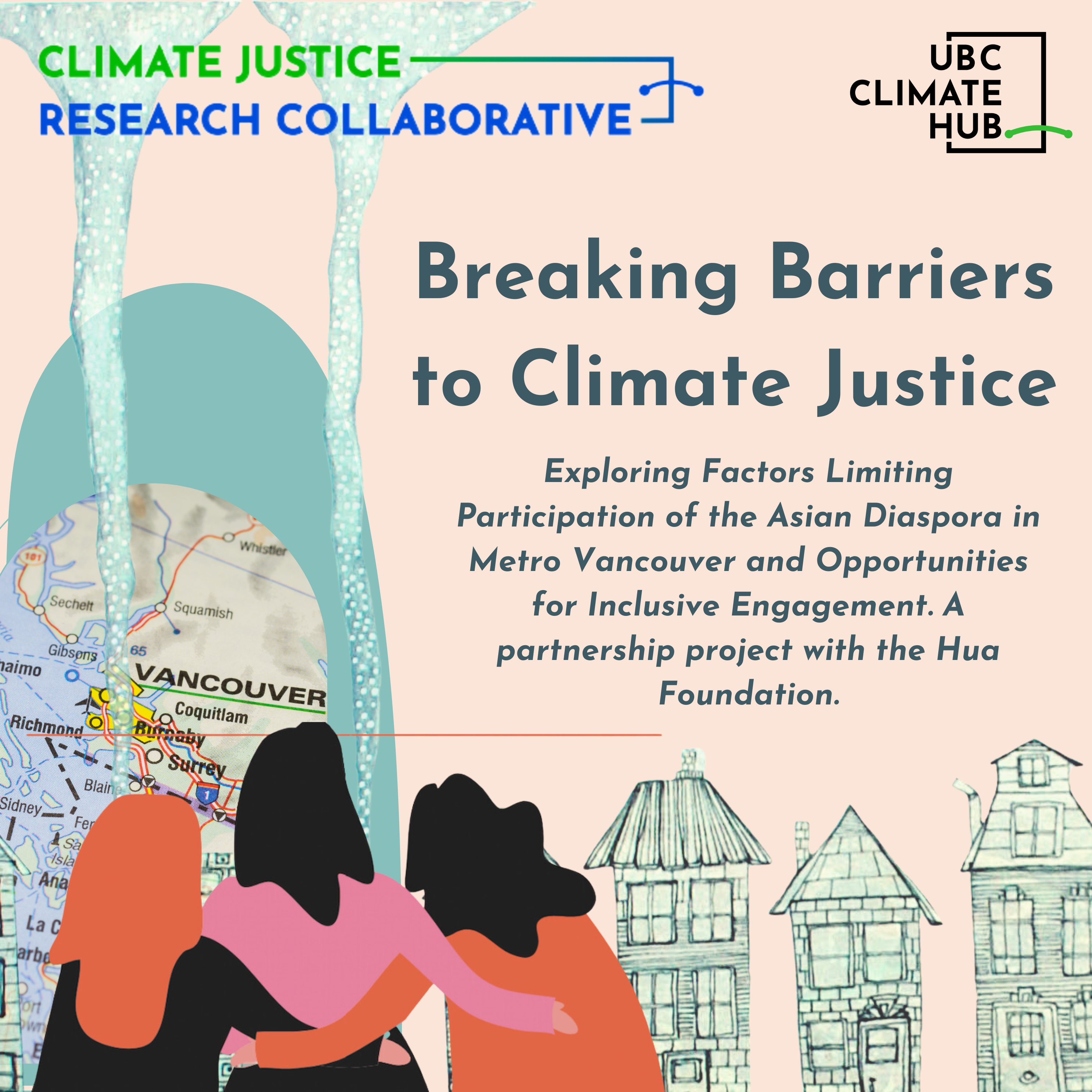
Author: Lynne Kim, Naomi Leung, and Jenica Pong
Faulty Supervsior: Dr. Carey Doberstein
Community Partner: Hua Foundation
Graduate Academic Assistant: Manvi Bhalla
Year: 2023

Climate change is impacting Metro Vancouver, with projections expecting warmer temperatures, extended summer drought periods, wetter and more extreme rainfall events, decreased snowpack, and rising sea levels (Metro Vancouver, 2023). On a local scale, these effects will impact different municipalities disproportionately depending on geographical location (e.g. closer to sea level versus further inland) and existing climate preparedness and adaptation strategies or policies (Province of British Columbia, n.d.). Different communities and individuals may experience unequal distributions of climate change impacts, depending on the presence of natural areas and green spaces, accessibility to heating/cooling infrastructures, along with low-carbon resilience solutions to climate change (Metro Vancouver, 2018).
Our project the main purpose is to identify barriers that currently exist which prevent the Asian Diaspora in Metro Vancouver from engaging with climate justice and accessing knowledge. This study has been completed in partnership with Hua Foundation, with research aiming to provide insights for the second phase of their Language Access Program (LAP) that centres resource building for translator kids. The report marks a gap that we, and the community partner, Hua Foundation, have identified. From the research process, we have identified a specific need for future researchers to develop resources and research in service and with the East Asian, South Asian, South-East Asian, West and Central Asian or Middle Eastern, and Pacific Islander communities due to the lack of existing research.